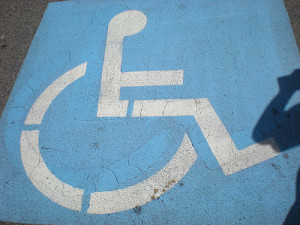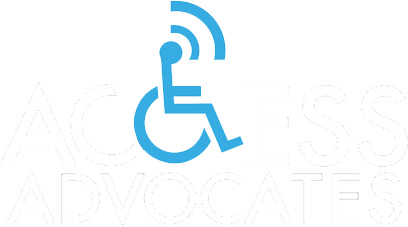 Imagine planning for a vacation with your family, paying the bill ahead of time, arriving early to make sure you check in on time, only to find that you don’t have access. Has this ever happened to you? It may have if you have a disability. Many facilities still are not up to code on allowing equal access to facilities such as resorts, hotels, dining facilities, and other public or private facilities.
Imagine planning for a vacation with your family, paying the bill ahead of time, arriving early to make sure you check in on time, only to find that you don’t have access. Has this ever happened to you? It may have if you have a disability. Many facilities still are not up to code on allowing equal access to facilities such as resorts, hotels, dining facilities, and other public or private facilities.
Title III of the Americans with Disabilities Act guarantees access to people with disabilities to any lodging facilities, whether public or privately owned, as well as any places of recreation, transportation, education, and dining facilities, as well as stores, malls, drug stores, and other facilities which they would need or desire access to.
If you have a disability, or someone you love has been discriminated against, what can you do? Should you just go on like everything is fine, lose your deposit and go to another facility? Or is there another option?
Discrimination against those will disabilities should never occur. When we hear about it on the job, we cringe. But, do we have the same reaction when we see a person in a wheelchair unable to enter a building because there is no wheelchair ramp? How can we help those with disabilities so they have equal access?
Here are some things to remember about the Americans with Disabilities Act:
- The ADA guarantees accessibility of ALL public buildings to those with disabilities or handicaps. This includes all colleges and universities, public schools, libraries, city and state buildings, hospitals, and government-funded organizations.
- The ADA guarantees access to most private and commercial buildings, as well, including hotels and restaurants, drugstores, shopping centers, and recreational areas.
- The ADAD guarantees that no one can be discriminated against for any reason pertaining to their handicap, under any circumstances.
- The ADA guarantees equal “access,” not just equal treatment.
- The ADA guarantees a right to file a grievance (complaint) if these rules are not adhered to.
So, what do you do if you see that an establishment is not following the Americans with Disabilities Act? Do you file a complaint with the city government? Call an attorney? All of these things can be both time-consuming and expensive.
An alternative is to turn to the people who think about these issues night and day. Access Advocates makes it their business to ensure that people with disabilities are given both equal access and are free from discrimination in all contexts.
For more information on what we do and how we can help if you feel you have a complaint, contact us.
[Photo credit: Michael Coghlan/Flickr]
